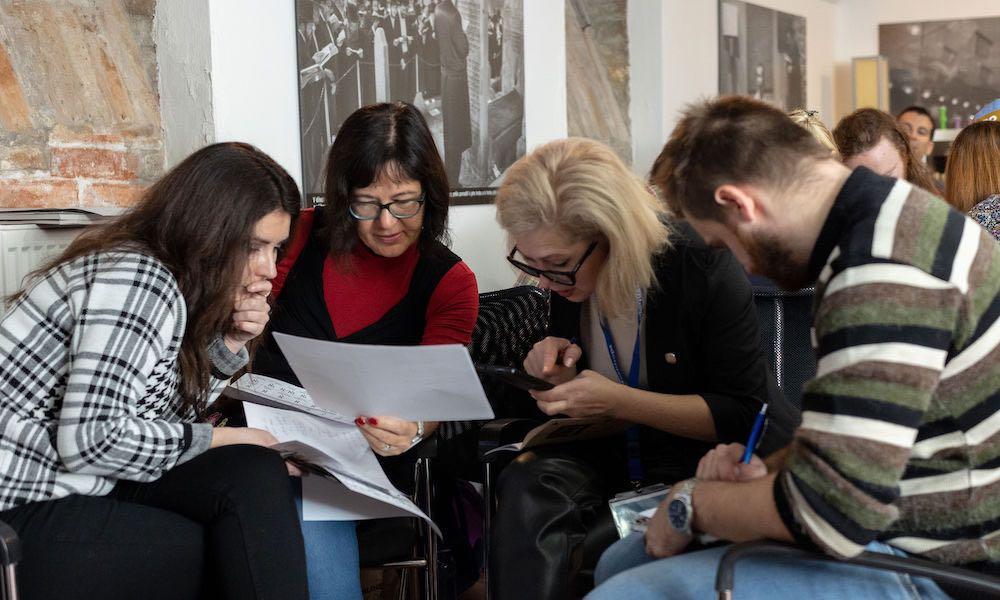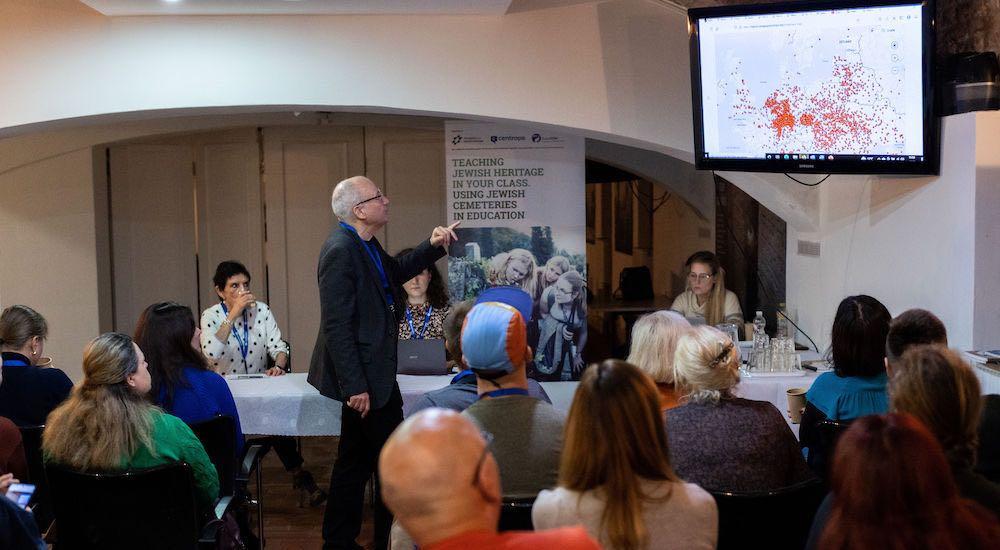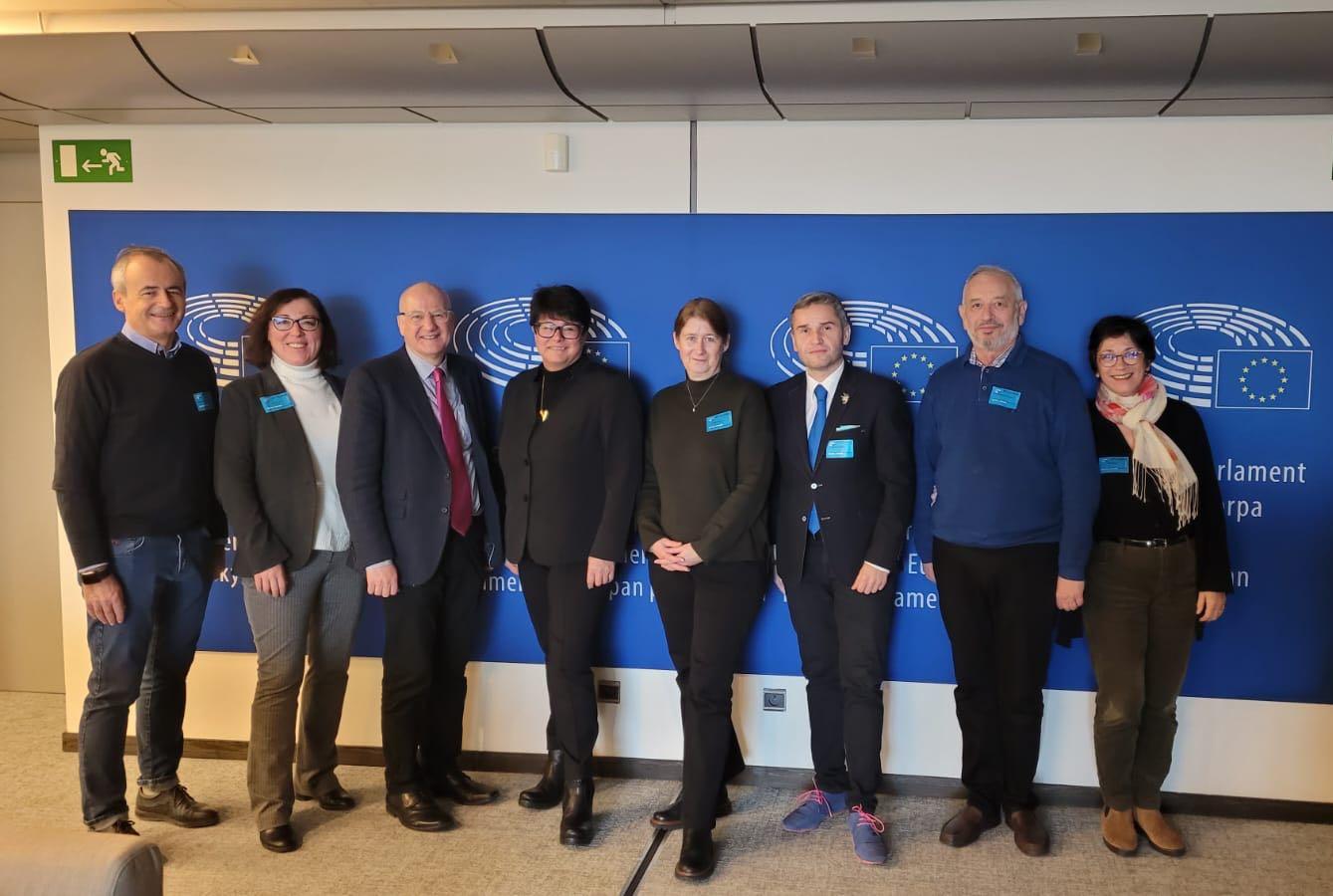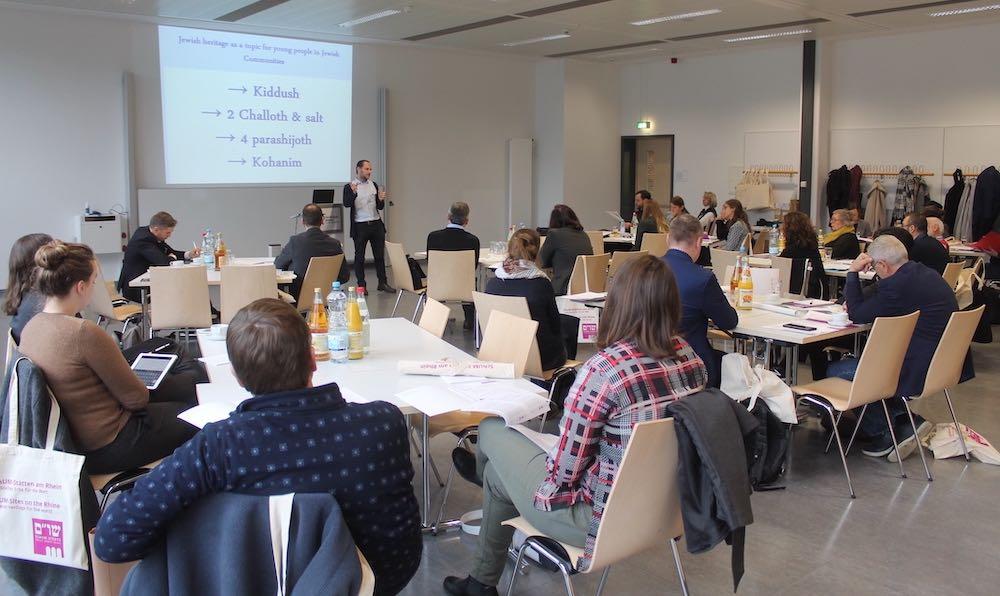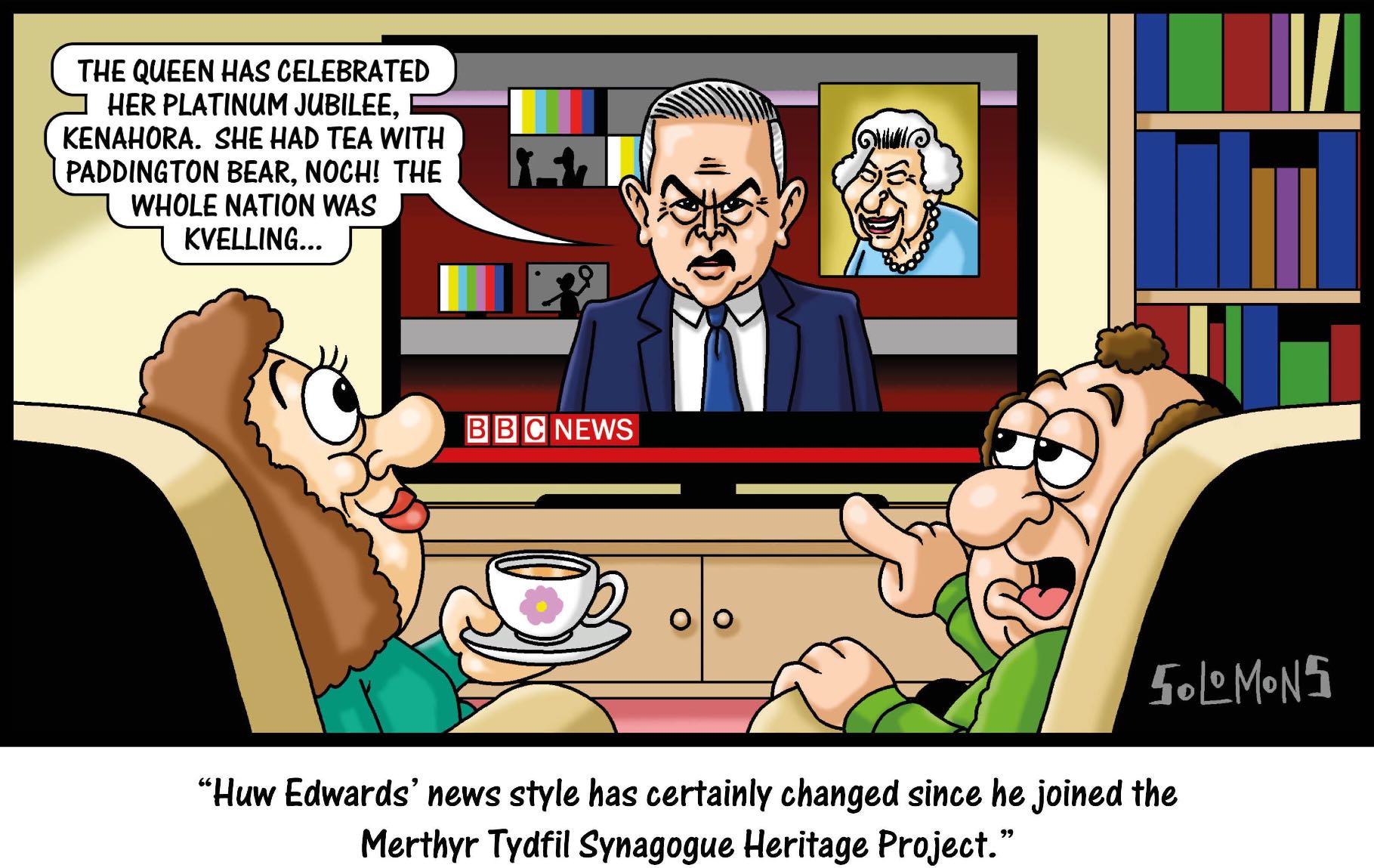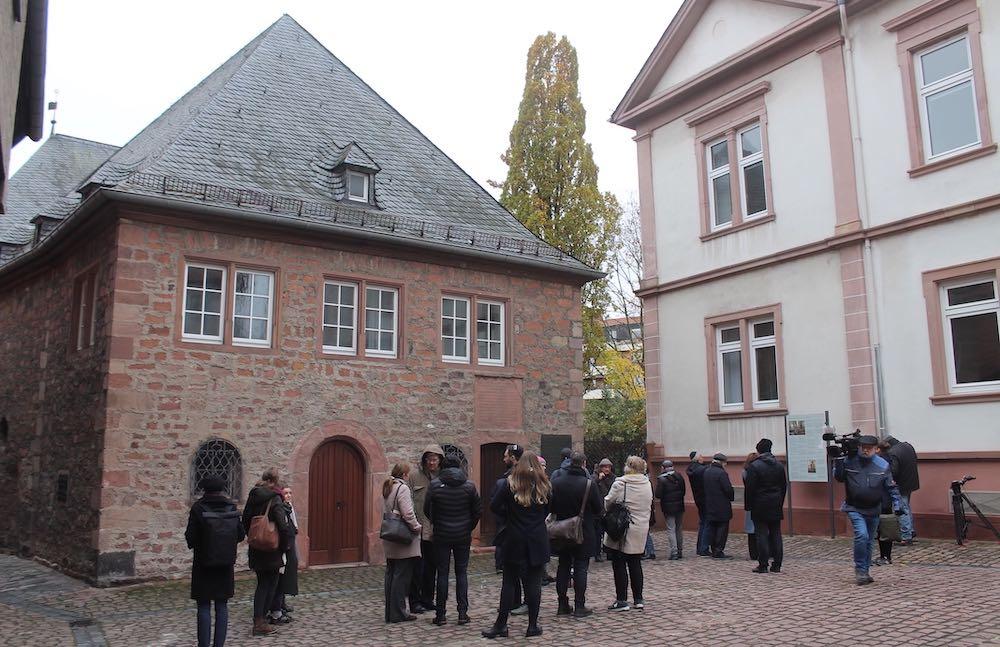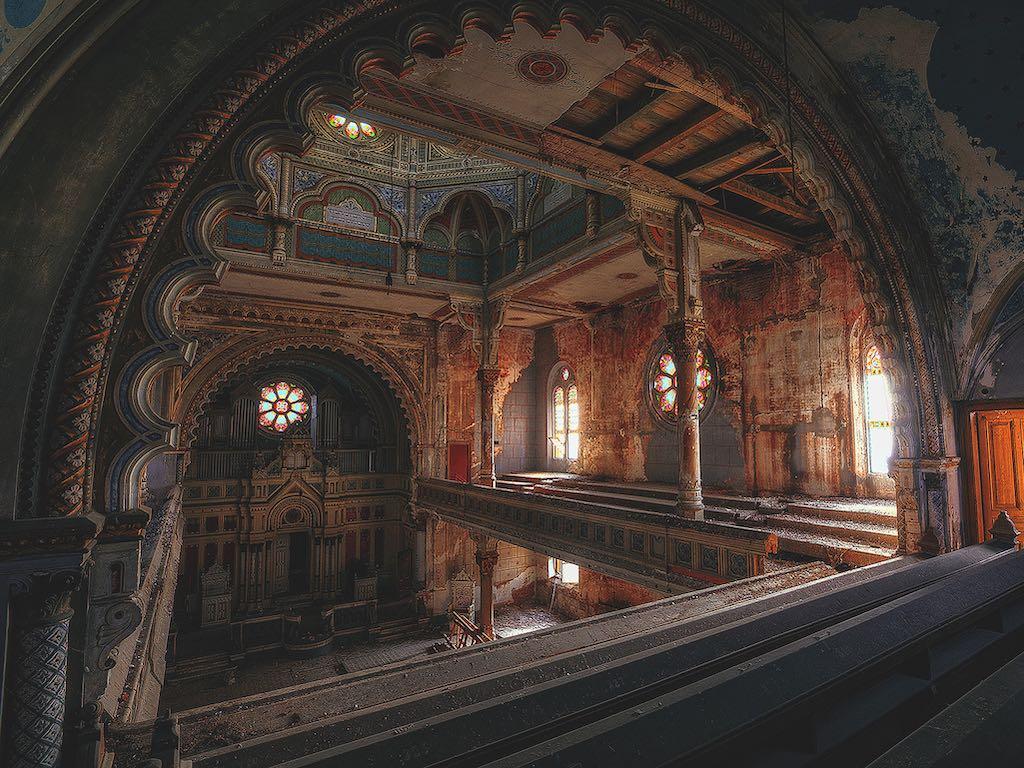Foundation for Jewish Heritage Annual Review 2022
 Dame Helen Hyde Chair of Trustees
Dame Helen Hyde Chair of Trustees
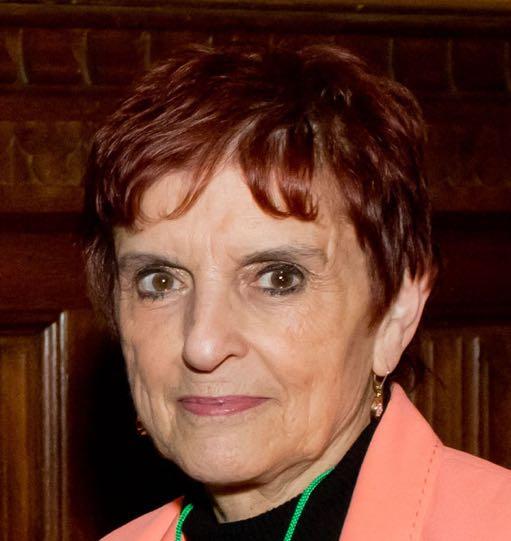
This has been another year of growth for the Foundation for Jewish Heritage.

We had the wonderful success with our fagship Merthyr Tydfl synagogue project in Wales, securing National Lottery Heritage Fund and Welsh Government backing to develop the site into a Welsh Jewish Heritage Centre.
We have also made progress with our other synagogue projects as you will read, working in close collaboration with our local partners. The importance of local activists cannot be over-stated. More than the buildings themselves, it is their passion and enthusiasm that we are championing. This has also been evident in the European Union-funded Jewish cemeteries project which has been another important focus in 2022. We have been meeting astonishing people – educators, municipal leaders, local residents - who are dedicated to ensuring that the once thriving Jewish life in their towns and cities is not lost to history.
We salute them, and we salute our many supporters who are so generous with their time, and their funds. Our work would be impossible without them.
Michael Mail Founder & Chief ExecutiveAt the core of our mission is education. We want to ensure that the communities that these heritage sites once served are recognised, understood, commemorated and celebrated. And we thank you for your interest.
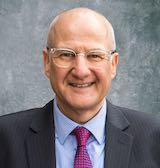
Preserving the past, shaping the future
The Foundation for Jewish Heritage works internationally to ensure that important Jewish architectural sites, monuments and places of cultural signifcance in danger are preserved and re-imagined for a sustainable future.
an estimated 17,000 synagogues in Europe in 1939
3,347 synagogue buildings remain today*
Just 736 still function as synagogues
770 sites are in danger
Our mission is delivered through four pillars:
Research – creating an inventory of Jewish heritage sites, and identifying those in danger
Advocacy – making the case for Jewish cultural heritage and promoting interest in specifc sites
Expertise – providing advice and guidance to create sustainable solutions for vulnerable buildings working with local partners, while fostering expertise in Jewish heritage preservation
Resources – securing funding for Jewish heritage sites at risk to ensure these are preserved, given a contemporary purpose, and saved for the future. * Visit our Historic
Highlights and Achievements 2022
The Foundation for Jewish Heritage has continued to make progress in 2022, with highlights including:
• a successful National Lottery Heritage Fund bid on behalf of the Merthyr Tydfl synagogue project in Wales, with match funding from the Welsh Government and Merthyr Tydfl County Borough County
• training teachers on the educational value of Jewish cemeteries, working with Centropa, ESJF and Euroclio as part of the EU-funded Jewish cemeteries preservation project
• presenting the Jewish cemeteries preservation project at Euroclio’s annual conference
• publication of the fnal report on the second phase of the Jewish cemeteries preservation project: 2019-2021
• completion of a masterplan for the development of the medieval synagogue in Hijar Spain
• funding of works to preserve the wall murals of the Etz Hayim synagogue in Izmir, Turkey

• visit to advise local activists working on the preservation of the Tempel synagogue in Hamburg, Germany
• defeating a second planning application detrimental to Bevis Marks synagogue in the City of London
• advising leaders involved in preserving Fagaras synagogue in Romania as they develop their approach
• working with the Brighton Jewish community in England on the future of the grade II* listed Middle Street Synagogue
• visit to advise local activists working on the preservation of the medieval synagogue in Korneuburg in Austria
• highlighting the forgotten medieval Jewish history of King’s Lynn, England
• recruiting BBC news presenter Huw Edwards as a Patron of the Merthyr Tydfl synagogue project
• discovering an L S Lowry painting of Merthyr Tydfl synagogue
• creating a Canadian Friends of the Foundation for Jewish Heritage in addition to the American Friends group
• holding high level meetings at the European Union to promote the development of ‘Moreshet’; the network of Jewish heritage professionals working across Europe
• chairing a session at the ‘New Realities in Jewish Heritage’ conference in Krakow, Poland in June 22
• participating in a ‘Future for Religious Heritage’ seminar in Gotland, Sweden, meeting religious heritage professionals from across Europe
• growing the Foundation’s profle and expanding the network of partners, friends, volunteers, patrons and donors.
Activities I
updates on key synagogue projects

• Merthyr Tydfl, Wales
• Orla, Poland
• Hamburg, Germany
• Hijar, Spain
• Izmir, Turkey
• Brighton, England
• Korneuburg, Austria
• Fagaras, Romania
Merthyr Tydfl, Wales
Having completed a Business Plan for the proposed Welsh Jewish Heritage Centre within the historic former Merthyr Tydfl synagogue, a submission was made this year to the National Lottery Heritage Fund (NLHF) which proved successful. Match funding was then secured from the Welsh Government and the Merthyr Tydfl County Borough Council which meant that full fnancing was in place to proceed with the project’s Development Phase. The next step has been to recruit a Project Manager which is in hand. Various expert consultants will then be appointed to take the project forward.
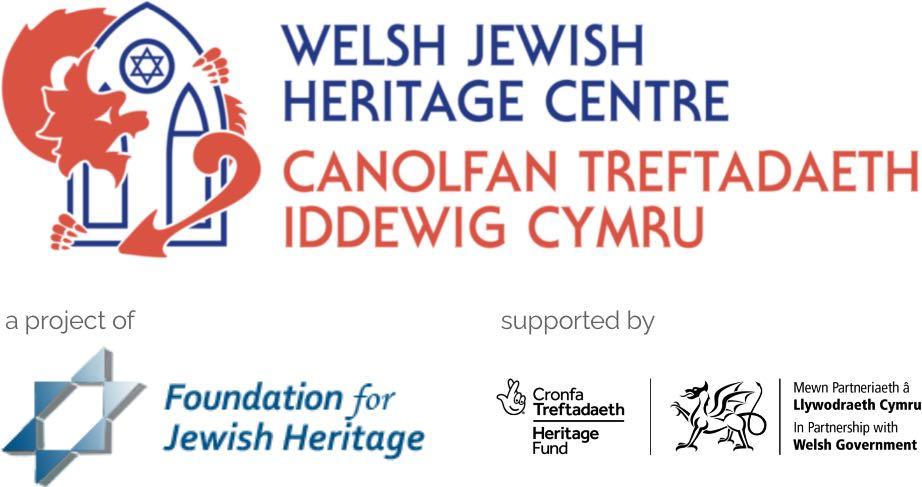
The Foundation visited two NLHF-funded Jewish heritage projects – the revamped Manchester Jewish Museum and the Leicester synagogue outreach project, to understand their approaches and any lessons for the Merthyr initiative.
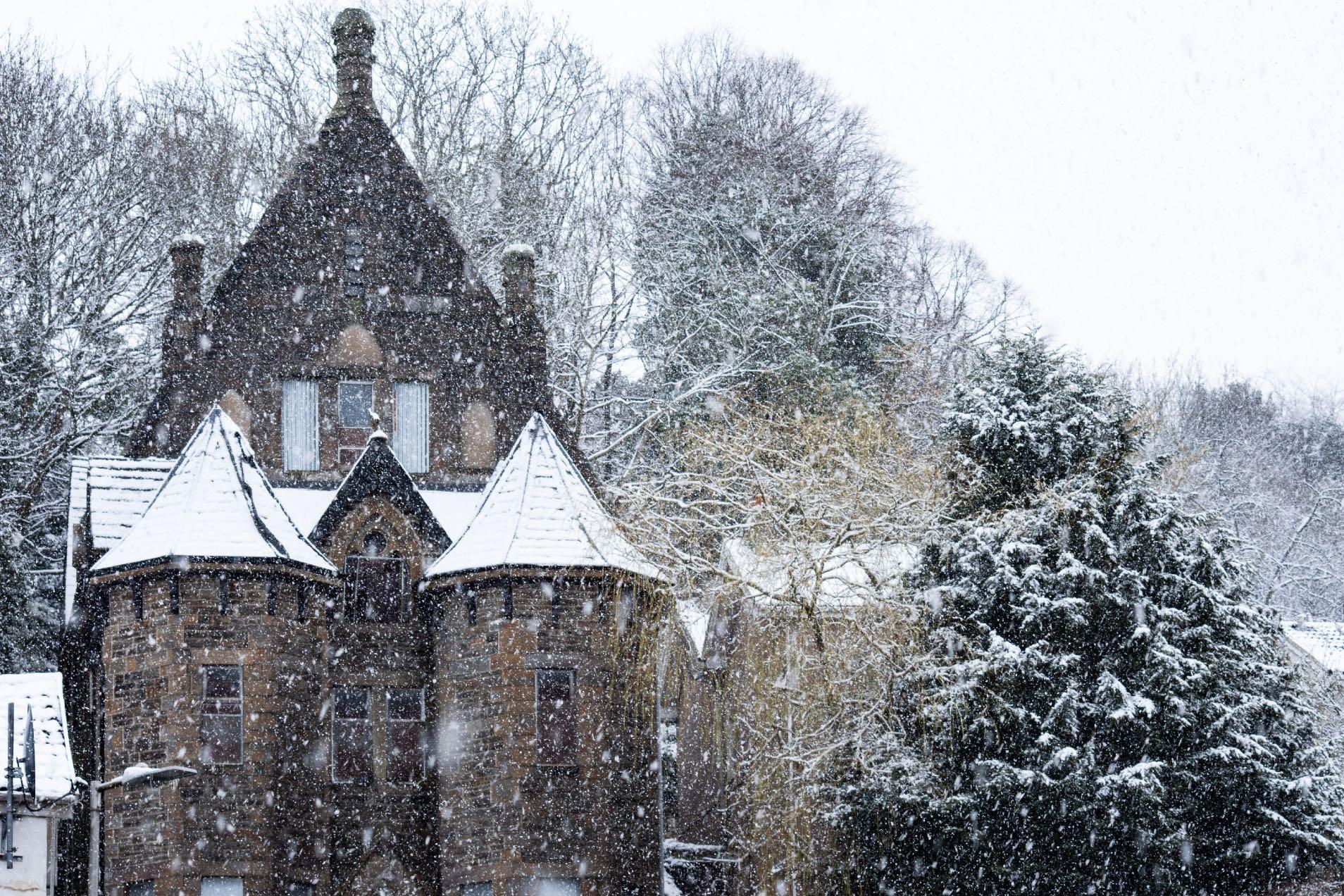
Interest in the project remains high. We continue to develop the network of organisations and individuals from within Merthyr and across Wales who have expressed a willingness to support, and participate in, the project. We also continue to attract signifcant media attention, with coverage on Welsh television as well as in print and online media.
We arranged for Rabbi Yisroel Fine, son of the last Rabbi of Merthyr Tydfl, to visit the town to refect on his memories of the synagogue, the tight-knit Jewish community that the building once served, and his very positive experience of living in Merthyr. The visit itself featured in various Welsh media outlets.
2022 also saw the launch of the website, Welsh Jewish Heritage Centre, which presents the nature of the project, the history of the Welsh Jewish community, and a number of Welsh Jewish heritage trails. There is also a special feature designed specifcally for schools, providing artefacts relating to the Welsh Jewish story to be used in classroom teaching. This has become more important with the decision of the Welsh Government to include the study of Welsh minorities as part of the national curriculum. The website was prepared with the Jewish Museum London having secured sponsorship from The Polonsky Foundation.
We were excited to discover that artist L S Lowry had painted the synagogue in the 1960s. The unknown work had come up for auction this year. We are exploring whether the painting might one day be loaned to the project and be put on display in Merthyr.
Leading BBC News presenter and Welsh heritage champion Huw Edwards agreed to become a Patron of the project joining comedian and author David Baddiel and philanthropist Sir Michael Moritz KBE.

Orla, Poland
FJH continues to work with the Foundation for the Preservation of Jewish Heritage in Poland (FODZ), owners of the striking Baroque Orla synagogue, and the University of the Arts Poznan, Poland’s leading arts college, to explore the possibility of using the site as a base for arts education, cultural events and a gallery space.
This builds on the success of the 2021 arts festival that was held in and around the synagogue which had as its theme inter-cultural dialogue.
Hamburg, Germany
The Foundation visited Hamburg to review progress with leaders of the campaign, which the Foundation has been supporting, to preserve and repurpose the historic Tempel Synagogue.
The city authorities had purchased the building from a commercial owner and discussions on its future have been ongoing. It is hoped that the site can be restored and brought back into use as a cultural and educational venue. There is also the idea that it might once again serve as a place of regular worship.

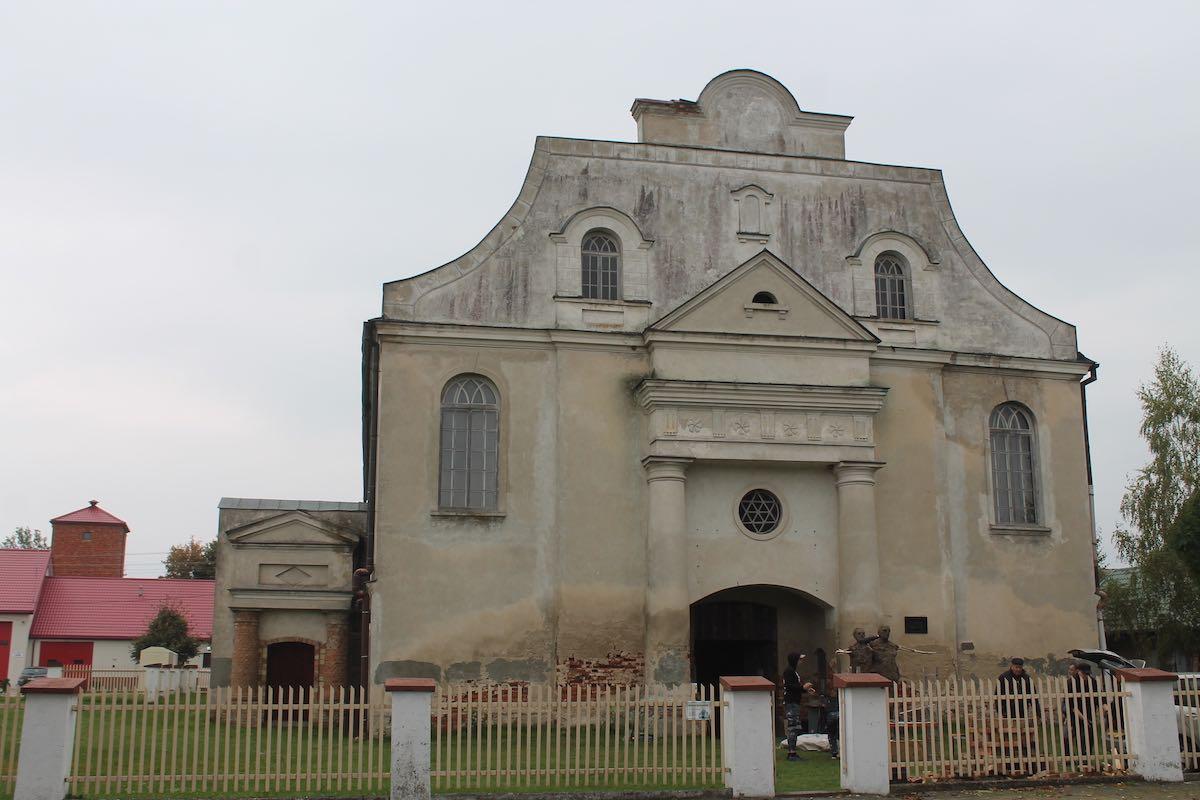
Hijar, Spain
The former synagogue in Hijar in Spain is one of the very few remaining medieval Jewish sites in the country. It has served as a church following the 1492 expulsion of the Jewish community, and is currently only used for services on one day a year.
The Foundation was invited by the Mayor of Hijar to prepare a masterplan based on the Municipality’s vision to turn the building into a Heritage Centre that will present the faith, culture and traditions of the former Sephardi community of the Aragon region.

The Foundation worked with local activist Lucia Conte Aguilar to prepare the plan which was submitted at the end of the year. It presents a road map for the project and will now be considered by the Municipality. and local community leaders.
During the year, Hijar learnt that it was the recipient of €500,000 in European Union funding that the Municipality is dedicating to restore housing and improve the infrastructure specifcally within the area of the former Jewish Quarter.
Izmir, Turkey
The Foundation serves on the Jewish Heritage Steering Committee working to restore a cluster of remarkable historic synagogues in the old quarter of Izmir.

The Etz Hayim is the oldest of these synagogues and, while the core programme of restoration has been completed, further preservation work was required on the ancient murals adorning its walls. The Foundation secured funding from the Phillip Leonian and Edith Rosenbaum Leonian Charitable Trust and The Salamanca Foundation to enable this further work - now close to completionto be undertaken. The Etz Hayim restoration programme has won several local heritage awards.
Brighton, England
The beautiful grade II* listed Middle Street synagogue in the centre of Brighton has been lying empty and largely unused for over 18 years, its condition deteriorating.
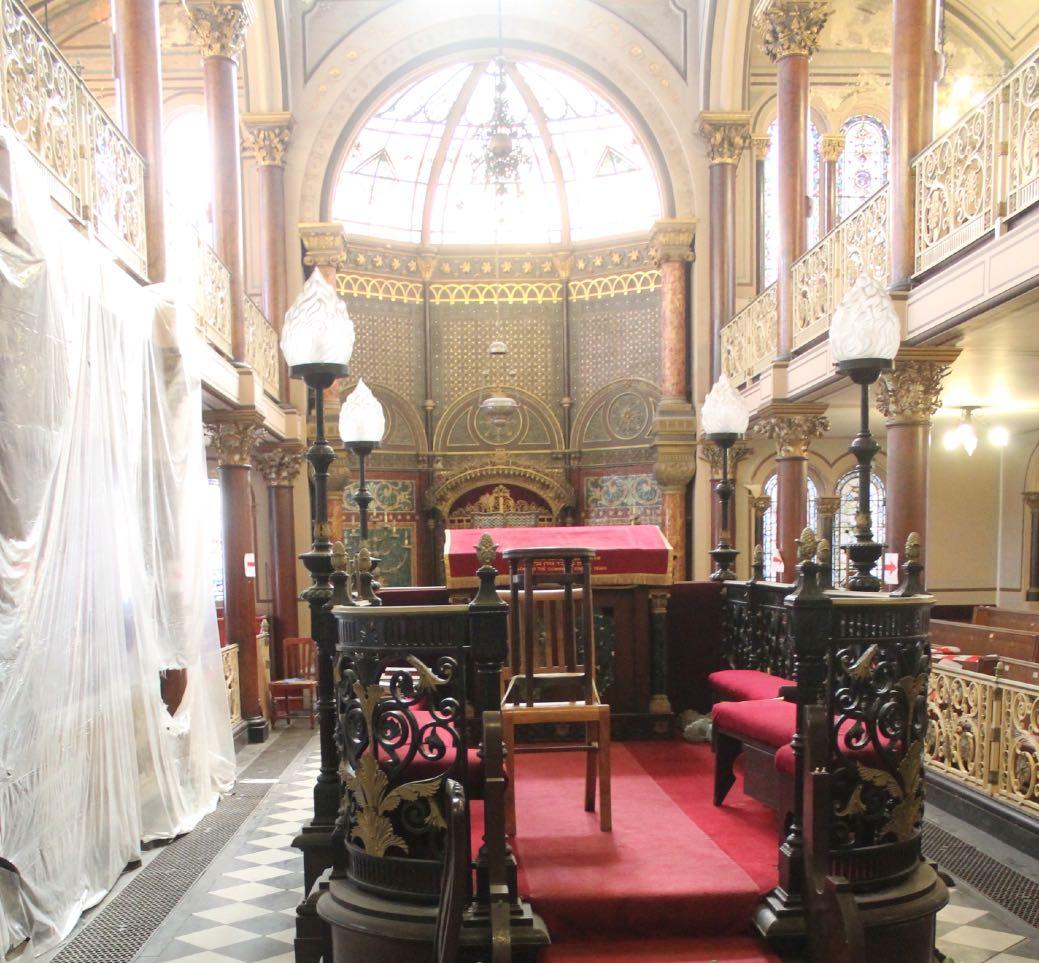
The Foundation visited the synagogue and met with local leaders to offer advice on the building’s future. We have since presented a plan as to how a project to restore and repurpose the building could be developed, based on undertaking an initial Feasibility Study to assess options on future use.
The site has signifcant potential given its heritage importance, its position within Brighton, and the level of local interest.
Korneuburg, Austria
There are very few medieval synagogues that survived in Europe which makes the synagogue in Korneuburg on the Danube north of Vienna immediately special. It is believed to have been built in the 14th century making it one of the oldest extant synagogue buildings in Europe.
The Foundation’s visit to Korneuburg was hosted by Klaus Kohler, a former Brigadier General in the Austrian army who, with the Foundation’s support, has been leading a campaign to preserve the synagogue and turn it into a cultural and educational venue focused on presenting the story of the former Jewish presence in the town.
The building was listed as a historic landmark in the 1980s but remains privately owned and is currently used as a garage. The plan is that the local Municipality will purchase the building, which will then enable the province of Lower Austria and the Federal Government to join the project and bring it fully to fruition.
There are two fascinating and ultimately tragic Korneuburg Jewish narratives; the frst dating from the medieval period that witnessed the synagogue’s creation, and the second from the modern period up to 1939. Both epochs will be covered in the planned new centre.

Fagaras, Romania
The Foundation is now advising a project to restore the former synagogue in Fagaras in Romania.


The synagogue is under the formal ownership of the Federation of Jewish Communities of Romania (FEDROM). FEDROM entered into an arrangement with the Municipality of Fagaras whereby it took a long-term lease on the building. In collaboration with local organisations led by Fundatia Comunitara Tara Fagarasului, the Municipality is now considering how the synagogue site could be developed to serve the needs of the local community in the town and surrounding area, while also being a memorial and place of education about the life and contribution of the former Jewish community.

Local activists are working with the Municipality on the project, and they are eager to receive advice and guidance. The Foundation is assisting, while also linking the project with other heritage organisations within Romania and beyond.

Activities II
• Jewish cemeteries in Europe
• Moreshet: network of Jewish heritage towns

• Advocacy
• Communications
• Operations

